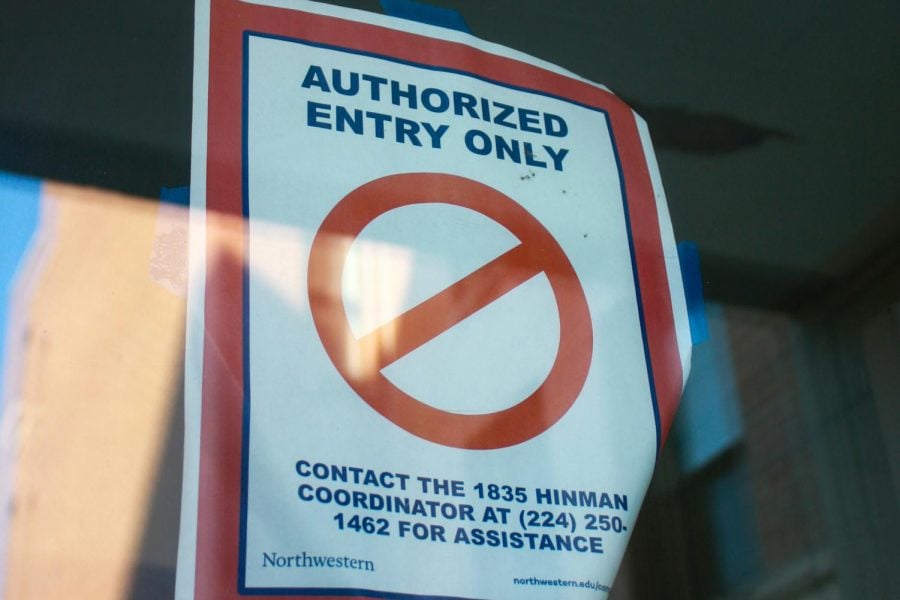Students face quarantine challenges amid rising COVID-19 cases
On-campus students who test positive for COVID-19 have to isolate in quarantine housing.
September 30, 2021
With on-campus COVID-19 cases rising two weeks into the quarter, some students who tested positive for COVID-19 have reported dealing with unresponsive hotlines, long wait times and overall confusion about the quarantine process.
When a student tests positive for COVID-19, University protocol directs a case manager to contact the student. Case management then informs the student about their quarantine housing and the expectations of their stay, Carlos Gonzalez, Executive Director of Residential Services, said in a statement to The Daily.
But after Weinberg sophomore Emia Musabegovic tested positive on Monday, she said she struggled to find information about how she should quarantine. Musabegovic and her roommate, who ultimately tested negative, spent hours calling different numbers and waiting to hear back.
“There was nothing that gave me quick directions or quick guidance on what I should be doing,” she said.
Ultimately, Musabegovic got in touch with case management, but she said the department’s instructions were often disjointed and confusing, especially when it came to the protocol for moving in quarantine housing.
Weinberg freshman Arianna Reith said she had a similar experience. She said case management told her they were understaffed the day she tested positive.
“It wasn’t one phone call explicitly saying, ‘Here’s all the information you need,’” she said. “It was more like, one call saying, ‘You have COVID,’ another call saying, ‘Here’s when your car is coming,’ another call saying, ‘Can you please fill out this form,’ another call saying, ‘Here is the contact tracing process.’”
On top of these logistical difficulties, quarantine also presents social and academic challenges, especially in the first few weeks of school.
Medill freshman Avigna Ramachandran, Reith’s roommate, said it was difficult to miss her first week of classes and first Northwestern football game.
Ramachandran began her quarantine in 1835 Hinman on Sept. 23 and returned to campus Tuesday at midnight. She said she had only attended one day of classes when her quarantine period began.
“It’s definitely very isolating being alone in the room in Hinman and just feeling FOMO,” Ramachandran said. “But I am really lucky to have had a great support system.”
Quarantining with her roommate and another friend helped make her experience less lonely, she said. Although they did not stay in the same room, Ramachandran said they were able to socialize in lounges.
This year, with classes fully in-person, students say it’s harder to keep up with class work while quarantining. Musabegovic said she has been able to stay on track academically, but in some of her classes, she is expected to do more work because she cannot attend in-person classes. She found the work especially difficult when she was experiencing COVID-19 symptoms.
“Instead of having your in-person component excused… you have to do written assignments instead, which are even harder than they would be in class,” she said.
Ramachandran said it was challenging to be out of class so early in freshman year. However, she said emailing her instructors and accessing asynchronous Zoom recordings of her in-person classes helped her keep up with her workload.
While navigating these academic struggles, isolation can also take a toll on students’ mental health. Musabegovic said one of her main difficulties has been combating boredom.
“There’s not a lot of physical resources and stuff to do,” she said. “You can only walk around your hallway, but I’m trying my best to keep it together.”
Musabegovic said the only entertainment she could request for her room was a yoga block.
Reith said isolation can be taxing and reminded other students to check in on their friends going into quarantine.
“Be mindful,” she said. “Look out for them. Keep them on track. Make sure that they’re okay. “The concern is less with physical complications and more so with the mental and emotional impacts of going into isolation.”
Reflecting on her experience, Reith said she sees room for improvement in NU’s quarantine policies and case management, even 18 months after the start of the pandemic.
“I think that they’re still working out a lot of kinks,” she said.
Email: [email protected]
Related Stories:
— Foster-Walker Complex to shift from quarantine housing to residence hall
— Modified quarantines implemented in Sargent, Elder after uptick in COVID-19 cases
— Students exposed to COVID-19 enter quarantine housing after Winter move-in












